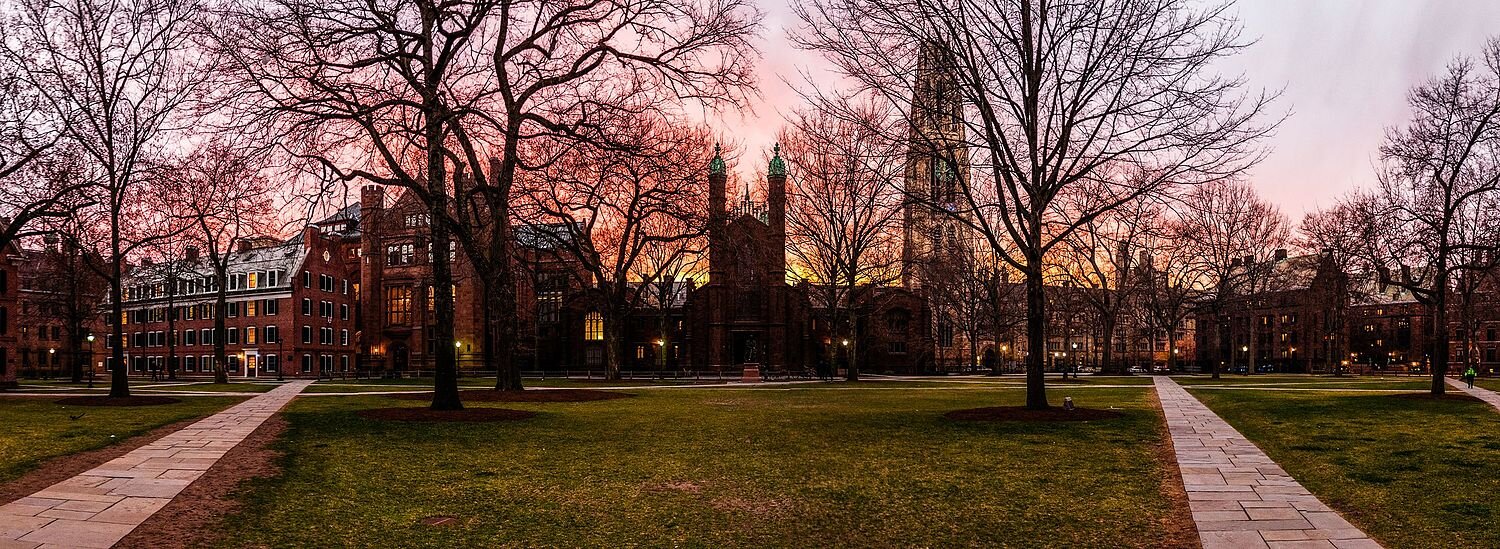Chris Powell: 'Nonprofit' Yale, with its vast endowment, is overwhelming New Haven
Yale’s Old Campus at dusk
Without Yale University, there might not be much left to New Haven beyond the daily shootings, drug overdoses, indignant demands for nullification of federal immigration law, and good pizza. Even so, Yale may be getting too big not just for New Haven but for Connecticut as well. Indeed, the university seems to be slowly taking over the city, which might be an improvement if it wasn't so undemocratic.
The New Haven Register reported the other day that the university this year converted six buildings from commercial to educational or medical use, thereby rendering them exempt from city property taxes and costing the city $3 million a year. Five months ago the university said it will build a neuroscience research center on the part of the Yale New Haven Hospital campus formerly owned by St. Raphael's Hospital, thereby keeping that prime property off the city tax rolls as well.
Meanwhile Yale's endowment has just broken $30 billion even as the finances of city government and state government remain a mess.
Sometimes nonprofit organizations fall too much in love with the endowments they amass from the tax exemptions conferred by state and federal law. Yale may be an egregious example of this. The university could not acquire much more property for nonprofit use in New Haven without demolishing the city's already weak tax base, and Yale's $30 billion endowment already might cover free or heavily discounted tuition for all ]the university's students for decades.
Unless it plans to acquire the rest of New Haven or even the state, how much larger an endowment does Yale really need?
According to the Register, Yale pays the city $5.6 million a year in property taxes on its nonexempt property and about $12 million more in a voluntary payment and a fee for fire protection. That's nice but still a fraction of what the university might pay without its property tax exemption.
From time to time state legislators and others have proposed taxing university endowments rather than repealing the property tax exemption for all colleges and hospitals, since Yale's endowment is so big that it easily could be taxed without touching any other endowments. The second largest such endowment in the state is said to be that of Wesleyan University in Middletown, only $1 billion. The endowment tax proposals have not gotten anywhere in the General Assembly.
But as Yale slowly consumes New Haven and as nonprofits and government agencies encroach more on the property tax bases of Connecticut's other cities, the rationale for tax exemption for nonprofits weakens, especially as crushing student loan debt shows that higher education is greatly overrated.
Bernie Sanders is not president yet, so any big stash of money is not automatically a target for communistic confiscation. But as long as donations to colleges and universities are tax-exempt and diminish the income tax revenue that otherwise would be collected from the donors by the state and federal governments, huge endowments like Yale's are fairly questioned. It's no matter that such endowments may be growing more from profitable investment than from fresh donations, since they originate mainly in donations that were tax-exempt.
But any revenue from taxing Yale's endowment should flow to state government, not city government, since state government already reimburses half the city's budget and city government is even less competent than state government. The best use of any new revenue for state government might be just to cut state taxes, since “property tax relief” is just a euphemism for raising municipal spending.
Chris Powell is a columnist for the Journal Inquirer, in Manchester, Conn.
-END-
